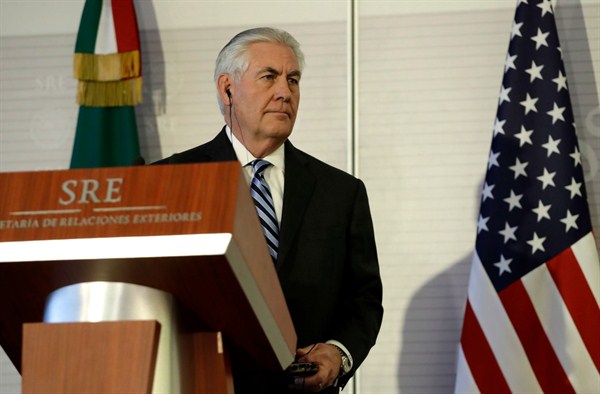It’s abundantly clear that the State Department is underperforming. The quiet demeanor of the new secretary of state, Rex Tillerson; the vacancies in nearly all the second- and third-tier positions; and the intention of the White House to curtail State’s capacity to be an effective player in national security have converged to marginalize this key institution. Can one conclude that Tillerson is complicit in this shift of fortunes, or are there underlying problems that matter more than the man at the top?
As Trump’s approach to foreign policy evolves, the concerns about the role of the State Department—and the new secretary of state—only continue to grow. From the earliest days, it was worrisome that Tillerson was absent from the president’s first meetings and telephone conversations with major allied leaders. The failure to fill the second- and third-tier positions that keep that machine of government in gear could be attributed to normal transition turbulence, at least for a while. But Tillerson’s lack of influence was publicly exposed when Trump’s advisers vetoed his choice for his own top deputy. And the apparent lack of agreement on any alternative candidate for the slot, let alone for the full cohort of senior officials, is becoming more than an embarrassment. The White House ideologues are taking a more direct role in foreign policy with little regard for the established protocols. As a result, Congress as well as embassies abroad are filling the vacuum in dealings with foreign governments that have real business to conduct with the U.S. government.
It’s hard to argue that these are temporary, ephemeral disruptions. The administration’s budget proposal reduces the funding request for State and the U.S. Agency for International Development by 37 percent. And it was clear when political appointees and career folks in very senior slots departed that the Trump team saw an opportunity to eliminate certain offices, including the counselor to the secretary and the deputy secretary for management and resources. Rumors are rife that special offices that have been created in the past decade to address soft power issues ranging from gender and endangered species to business development will be shut down entirely.

